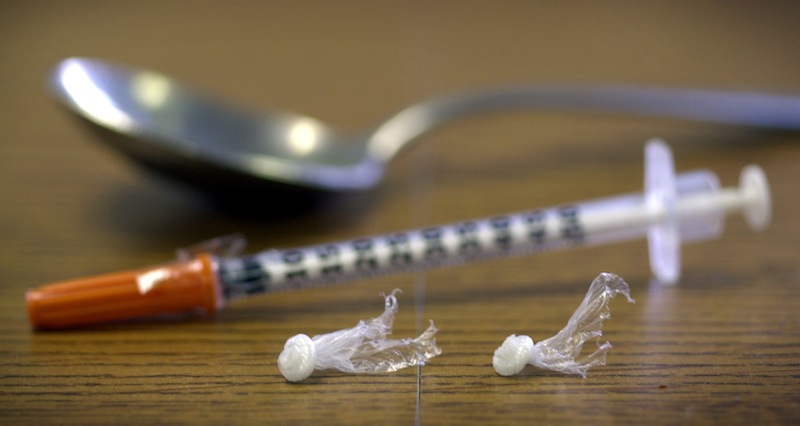Substance-abuse specialists in Maine say they’re seeing a sharp increase in heroin addiction, even as progress is being made against the misuse of oxycodone and other prescription opiate painkillers.
The statewide trend, which mirrors national figures, worries treatment experts because it coincides with the imposition of state-mandated limits on the use of the most effective drugs for treating addiction.
“We have a public health emergency here,” said Ronni Katz, the substance-abuse program coordinator for the city of Portland, describing the spike in heroin use Wednesday.
Locally, the trend “is really startling,” said Mark Publicker, an addiction specialist with Mercy Hospital.
Injected heroin, “from the standpoint of an addict, is a better drug” than prescribed opiates, because it gets into the system quicker and is more intense than pills, he said.
The American Society of Addiction Medicine reports that misuse of prescription drugs has dropped about 15 percent nationally since 2010, while heroin use has doubled since 2007.
Publicker said he’s unaware of figures that document heroin use in Maine, but he has seen a sharp rise in the number of patients reporting that it’s their drug of choice.
Stuart Gitlow, acting president of the society, said progress has been made against the misuse of prescription drugs through public education that highlighted the drugs’ highly addictive nature, together with an effort to get doctors to limit painkiller prescriptions and more closely monitor the patients who use them.
While that curbed those drugs’ availability to abusers, heroin became a cheaper, more available alternative, Gitlow said, particularly in New England, where high-grade heroin can be found.
He said the drug in southern New England, where he’s based, is so pure that some users start out snorting it, avoiding the deterrent of self-injecting.
Publicker, however, said he has been struck by how many young people he sees in Maine who are injecting heroin. Their inexperience, he said, often leads to overdoses. He said he knows of four nonfatal heroin overdoses in the Portland area in the past two weeks.
Publicker fears that increased use of intravenous drugs will lead to a rise in HIV, hepatitis C and blood infection cases in the state.
“We’re really at risk of seeing something we haven’t seen before,” he said. “All of these are certainties, not hypotheticals.”
The state, he said, is focusing more of its substance-abuse efforts on prevention, which is good, but that endeavor must be combined with treatment, for a comprehensive and effective response to rising rates of heroin addiction.
“It’s akin to providing fire prevention (advice) when the house is on fire,” he said. “It’s a good idea for the next fire, but it doesn’t do anything for the immediate problem.”
Publicker and Katz, the substance-abuse coordinator for Portland, are both concerned about the impact of state-mandated treatment limitations that are scheduled to start Jan. 1.
The state will put a two-year cap on the use of buprenorphine and methadone, the two most effective drugs for treating heroin addiction. The limit will be applied retroactively, so some people who now rely on the treatment may be cut off immediately, Publicker said.
He said he has joined a task force that has been formed to try to make an amendment to the limit that would allow treatment to be extended if a doctor certified that a patient was making progress socially — such as getting a job or going back to school — and remained crime-free.
Publicker also noted that only people with some form of insurance can even get treatment, so many heroin addicts are unlikely to get help.
Katz said the cutbacks at a time when heroin use is rising creates a frightening scenario.
“It’s going to get far worse,” she said. “This is just a preview. Fasten your seat belts.”
Staff Writer Edward D. Murphy can be contacted at 791-6465 or at:
emurphy@pressherald.com
Copy the Story LinkSend questions/comments to the editors.




Success. Please wait for the page to reload. If the page does not reload within 5 seconds, please refresh the page.
Enter your email and password to access comments.
Hi, to comment on stories you must . This profile is in addition to your subscription and website login.
Already have a commenting profile? .
Invalid username/password.
Please check your email to confirm and complete your registration.
Only subscribers are eligible to post comments. Please subscribe or login first for digital access. Here’s why.
Use the form below to reset your password. When you've submitted your account email, we will send an email with a reset code.